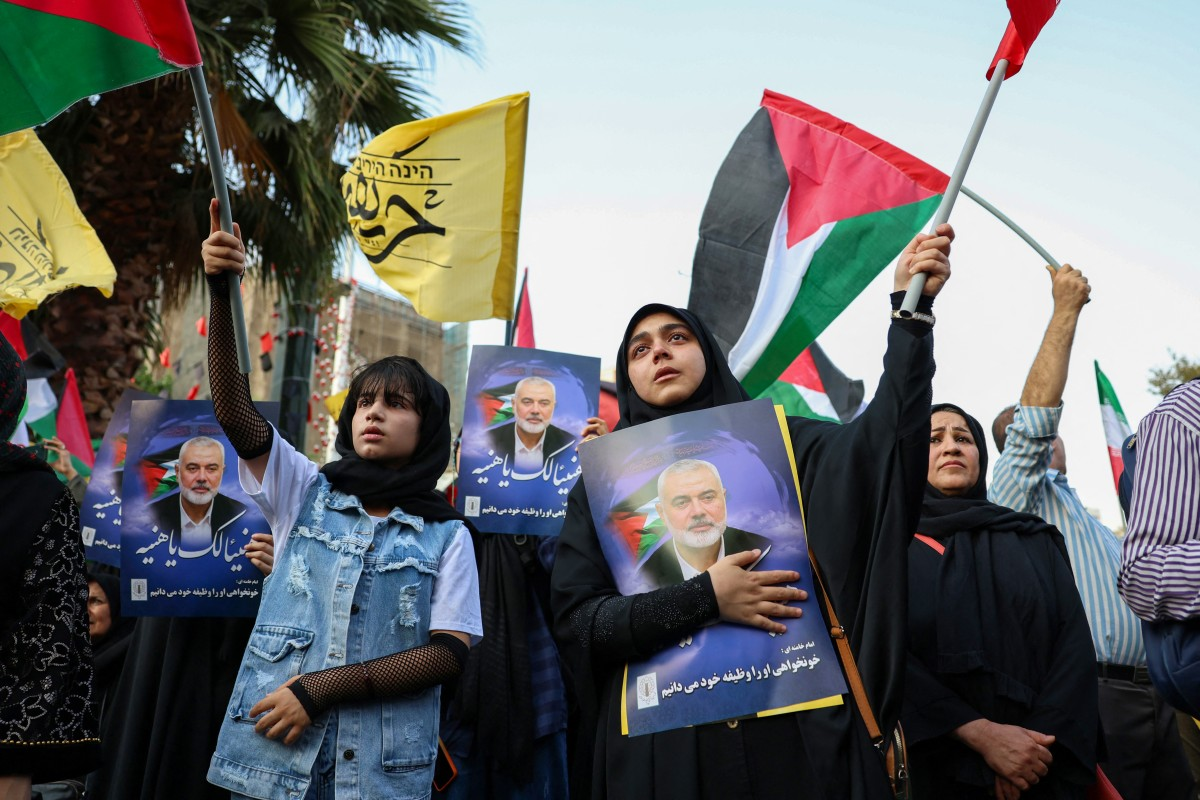
Tehran, August 2 (RHC)-- The assassination of Hamas political chief Ismail Haniyeh on Wednesday risks the region spiralling into a wider conflict and could help or hurt prospects for a ceasefire deal to end Israel’s war on Gaza, several analysts told Al Jazeera.
Haniyeh was killed while attending the inauguration of reformist Iranian President Masoud Pezeshkian in Iran’s capital, Tehran. Hamas has blamed the assassination on Israel, saying in a statement that Haniyeh was killed in “a treacherous Zionist raid on his residence in Tehran”. There was no immediate comment from Israel.
The attack occurred hours after Israel struck a building on Tuesday evening in Dahiya, a bustling neighbourhood in Lebanon’s capital, Beirut, killing Fuad Shukr, a top commander from the Lebanese armed group Hezbollah. The strike in Beirut came three days after an attack killed 12 Druze children in the Israeli-occupied Golan Heights which Israel has blamed on Hezbollah, although the group denies responsibility.
Risk of further escalation
The killing of Haniyeh and Shukr will push Iran and Hezbollah to respond delicately to avoid a full-blown regional conflict. Diplomats from the United States and the European Union are reported to be in talks with their regional counterparts, trying to prevent the crisis from spiralling further. The EU’s efforts are believed to be focused on Iran, whose leaders have vowed “harsh revenge” against Israel, whom they have blamed for Haniyeh’s assassination in Tehran.
But any retaliation – even if measured – raises the possibility of further escalation, regional analysts told Al Jazeera. Experts were unsure of how Hamas, which governs Gaza, will – or can – respond, given they have been entrenched already in a 10-month war with Israel.
The attack on two regional capitals and the targeting of two senior leaders of the “axis of resistance” – a regional network of armed groups opposed to Israel-US hegemony in the region – “is an escalation that can expand this war on multiple fronts,” said Negar Mortazavi, an expert on Iran and a senior fellow at the Center for International Policy.
“[But] I don’t think Iran wants a major escalation,” she told Al Jazeera. “They avoided that back in April when they saw Israel’s attack on their consulate in Syria as crossing a red line – and Iran retaliated, but in a way that minimised the impact [of their strikes] to avoid a major escalation. “I expect a similar situation again this time.”
Mortazavi was referring to Iran’s attack in April when it fired a barrage of missiles and drones at Israel in response to an air strike on Iran’s consulate building in Syria, which killed seven people including two Iranian generals. Iranian authorities blamed Israel for the attack. Iranian officials also said repeatedly that regional states were given a warning 72 hours before the barrage was launched on Israel.
Israel’s devastating war on Gaza has killed nearly 40,000 people, uprooted almost the entire population of 2.3 million and led to what UN experts are calling a famine in the enclave. The war started in response to a Hamas-led attack on Israeli communities and military outposts on October 7, in which 1,139 people were killed and about 250 were taken captive.
Over the last few months, Hamas and Israel have been locked in ceasefire talks aimed at ending the killing in Gaza and releasing Israeli captives in exchange for thousands of Palestinian prisoners, who risk abuse in Israeli prisons.
But Israel’s Prime Minister Benjamin Netanyahu has often undermined ceasefire talks, according to critics and experts. They accuse Netanyahu, whose popularity is at an all-time low, of not wanting to end the war for fear that it could collapse his far-right coalition government and trigger an early election.

